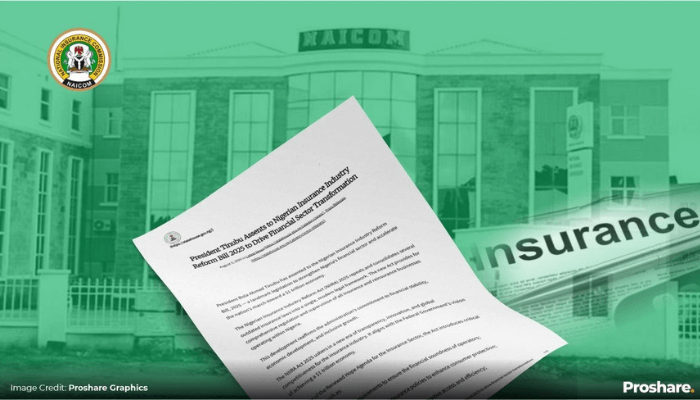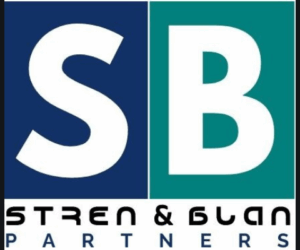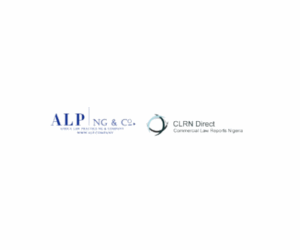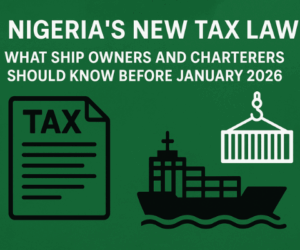Introduction
On Tuesday, August 5, 2025, the Nigerian President, Bola Ahmed Tinubu signed into law the Nigerian Insurance Industry Reform Act (NIIRA or the “Act”) 2025. The Act represents a significant milestone in the development of a robust regulatory framework designed to support the goal of growing the Nigerian economy to the tune of one trillion US dollars by 2030. The Nigerian Insurance sector faces a historic transition as the Act replaces old regulations and unifies disparate insurance laws into a single, contemporary framework.
This newsletter highlights key provisions of the Act such as scope and license categorization, capital requirements, consumer protection and regional policy integration through the introduction of the ECOWAS Brown Card Scheme.
A. Scope & License Categorization
The Act is applicable to all insurance businesses and insurers in Nigeria except:
i. an association of persons with no share formed for the purpose of aiding its members or their dependents;
ii. a corporate or unincorporated body whose business is established outside Nigeria and engaged solely in re-insurance transactions with insurers licensed under the Act;
iii. deposit insurance carried out by the Nigerian Deposit Insurance Corporation under the Nigerian Deposit Insurance Corporation Act.
Furthermore, the Act broadly provides for two (2) license categories – life insurance and non-life insurance. While the life insurance license category is divided into four (4) classes which are: individual life assurance, group life assurance, annuity and health insurance businesses’, the non-life insurance license include: fire insurance, general accident insurance, motor vehicle insurance, marine and aviation insurance, energy (oil, gas and power) insurance, engineering insurance, bonds credit guarantee and suretyship insurance and agricultural insurance other than those covered by the
Nigerian Agricultural Insurance Corporation Act.
Notwithstanding the above, the Act authorizes the National Insurance Commission (the “Commission”) to publish additional insurance classes in the Federal Government Gazette.
B. Capital Requirements
To improve operators’ financial stability, the Act stipulates the minimum share capital requirement for insurers licensed under the Act. This new share capital requirement is the first recapitalization in over two decades in the insurance industry.
The minimum capital requirements are listed below:
i. Non-Life Insurance Business: The higher of fifteen billion naira (N15,000,000,000) or the risk-based capital determined by the Commission.
ii. Life Insurance Business: The higher of ten billion naira (N10,000,000,000) or the risk-based capital determined by the Commission.
iii. Reinsurance Business: The higher of thirty-five billion naira (N35,000,000,000) or the risk-based capital determined by the Commission.
Also, the Act requires all insurers registered before the commencement of the Act to comply with the minimum share capital requirements within 12 months of the commencement of the Act. Furthermore, the Act empowers the Commission to require an insurer to increase its capital beyond the minimum capital requirement where the Commission considers appropriate having regard to the nature, size and complexity of the insurance business of the insurer.
C. Regulatory Filings
The Act requires every insurer not later than June 30 of each year, to submit in writing to the Commission its duly audited financial statements, revenue account and statement of investments before presentation at its annual general meeting. Following the approval of the Commission; the insurer must publish its general annual statement of financial position, statement of profit or loss and other comprehensive income in at least two widely circulated newspapers in Nigeria. The Act also requires all insurers to submit quarterly returns in the form prescribed to the Commission not later than 10 days after the last day of each quarter or such other interval as the Commission may specify.
D. Consumer Protection Mechanisms
Section 212 of the Act introduces the Insurance Policyholders’ Protection Fund (the “Fund”) to give policyholders financial security in the event that an insurer goes bankrupt or is unable to fulfill its responsibilities.
The Fund shall comprise of:
i. 0.25% of the gross premium of income of every insurer and reinsurer; and
ii. 0.25% of the balance standing in the Security and Insurance Development Fund as of December 31 of the preceding year.
The goal of the Fund is to safeguard consumers, preserve stability in the insurance sector, and boost public trust by ensuring that legitimate claims are paid in the event of an insurer’s default. Other funds in the Act include Fire Services Maintenance Fund and Road Accidents Victims Compensation Fund.
E. ECOWAS Brown Card Scheme
To ensure Nigeria’s seamless integration into the Economic Community of West African States Brown Card Scheme (the “Scheme”), the Act creates the National Bureau on the ECOWAS Brown Card Scheme (the “Bureau”). The Scheme is a motor insurance scheme that provides prompt and fair compensation to victims of motor accidents caused by visiting motorists. In line with objectives of the Scheme, the Bureau is responsible for maintaining claims for cross-border auto accidents in West Africa, ensuring adherence to ECOWAS procedures and implementing the Scheme.
F. Quicker Claim Assessment and Disbursement
The Act aims to improve the responsiveness of insurers in claims disbursement by setting out strict deadlines to ensure that policy holders promptly receive financial relief, which is often critical in emergencies such as accidents or property losses. In more specific terms, Section 210 of the Act requires all insurers to settle all claims in writing by the insured or entitled parties within the timelines specified in the Commission’s Service Charter, not later than 60 days of notification. The failure by any insurer to comply with these requirements will attract a penalty in addition to compound interest on the claim amount.
G. The Insurtech Guidelines and the Act.
In a previous article on the Guidelines for Insurtech Operations in Nigeria , the regulatory framework governing insurtech operations in Nigeria was highlighted. While the Guidelines set out the minimum requirements for insurtechs’, the Act expands their regulatory compliance obligations. Therefore, both regulations serve as the regulatory framework for Insurtech’s in Nigeria.
H. Sanctions
Where a person transacts insurance business without holding a valid license, the Act prescribes a penalty of twenty-five million Naira (N25,000,000), two years imprisonment or both for individuals. While in the case of companies, firms or such other combination of persons, each principal officer of the company, firm or such other combination of persons responsible shall be sanctioned to pay a fine of fifty million Naira (N50,000,000), two years imprisonment or both.
Conclusion
With the enactment of the Nigerian Insurance Industry Reform Act 2025, the Nigerian insurance industry is about to experience a massive transformation. The Act provides the much-needed regulatory clarity by establishing comprehensive consumer protection procedures, precise claim processing timelines, and stricter regulatory standards. However, the onus of compliance and enforcement of the Act rests with insurers and the
Commission
Their ability to enforce compliance, embrace innovation, and deliver on the overarching objectives of the Act will ultimately determine whether the Act achieves its goal of building a stronger, more inclusive, and trustworthy insurance sector in Nigeria.
Seun Timi-Koleolu is a Founding Partner at Pavestones, a full-service law practice situated in Lagos Nigeria






